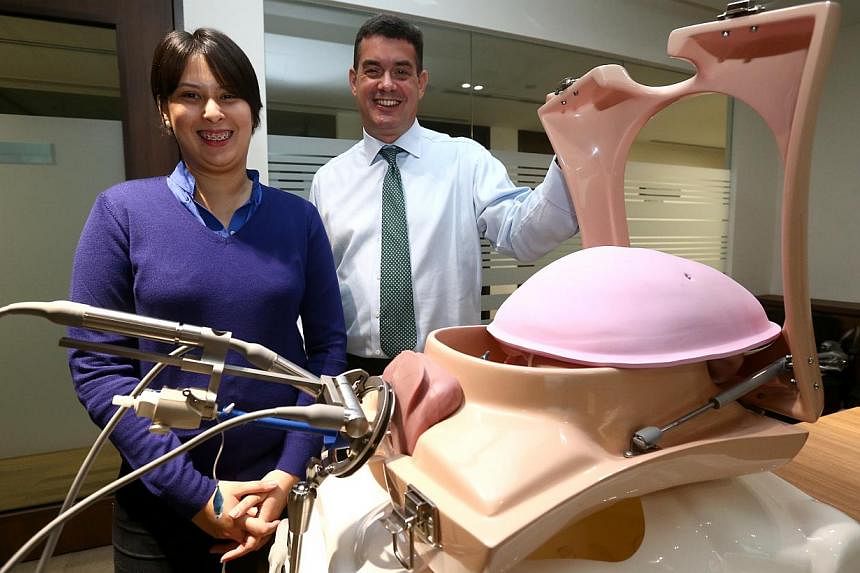"Viky, move left. Stop," a surgeon calls out. His command is obeyed. No questions asked. But he appears to be speaking to no one in particular.
Viky is not human. "She" is a fully voice-controlled, bluetooth-enabled robot designed for gynaecological surgery. It is now in use here for the first time at the Singapore General Hospital.
The US$75,000 (S$93,000) gizmo known as the Viky Uterus Positioner robot provides a pair of untiring hands to hold a woman's womb securely in place in various positions during surgery.
Surgeons can change the womb's position by voice alone, with Viky understanding 14 phrases including up, down, left, right, in and back.
They can hence operate more precisely without it shifting or blocking their vision, explained Dr Peter Barton-Smith, a senior consultant from SGH's department of obstetrics and gynaecology. He pioneered the use of Viky in Britain in 2010.
Usually, the job of holding the womb is done by a junior doctor. He or she may have to do so for up to two or three hours at a time, said Dr Barton-Smith.
"It is important to have fine control and fixed positioning of the uterus to reduce inadvertent damage to sensitive structures like the bowel and ureter," he said. "In long surgical operations, an assistant can get tired."
Harnessing the use of robotics in surgery is becoming more common worldwide. Compared to conventional open surgery, women can expect fewer complications and a faster recovery.
With the use of Viky, and another robot known as da Vinci Si to help surgeons perform the actual surgery, patients will on average have a hospital stay of two days, half the usual time, said Dr Barton-Smith.
SGH has performed more than 10 operations using Viky since March. Ms Vargilia Bridget Welford, 27, underwent surgery in March for endometriosis, a pelvic pain affecting some 10 per cent of women.
The manager who works in media took just three weeks to recover, compared to an average of six weeks for those undergoing open surgery.
Ultimately, said Dr Barton-Smith, robotic surgery "allows us to carry out more complicated cases more effectively and more safely for patients".

